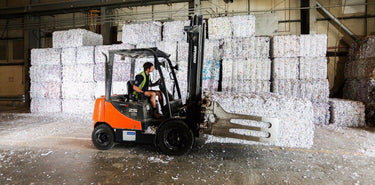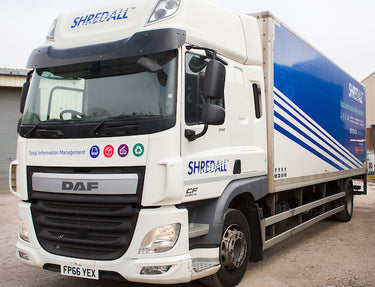Making your Business Compliant
Under GDPR, defining and managing processes around personal data protection and compliance is compulsory with heavy fines in place for those who are not compliant. This guide will show you how Shredall SDS Group’s services, including everything that supports document management, can help you to be compliant with GDPR so your company doesn’t suffer the price.
What is GDPR?
The UK GDPR came into effect on 31 January 2020, replacing the previous version mandated by the EU. The UK data protection legislative framework is made up of the UK GDPR and the 2018 Data Protection Act. This framework controls the way information is handled and gives legal
rights to individuals who have information stored about them.
UK GDPR specifies that personal information must be securely managed at all stages of processing, including the deletion of digital information and the destruction of physical information no longer required for its original purpose. Organisations must, therefore, ensure that confidentiality and compliance is maintained to the very end. In other words, many companies that still use physical documents need GDPR compliant shredding.
This is where Shredall SDS Group can help you.
The importance of GDPR compliant shredding and document management
GDPR has made crucial changes to the way in which you store and access your files. With shorter timescales for subject access requests, stricter requirements for storing data, and harsher punishments for data breaches, going as high as a potential £17.5 million fine or 4% of your annual global turnover from the preceding year, it's vital that you know exactly where each and every record you hold is stored to ensure compliance and enable fast, secure retrieval.
With ICO recording loss and theft of paperwork, insecure file storage, improper disposal, and data sent to the wrong recipient as some of the biggest data breach risks, it's clear that the secure storage, access and destruction of documents are key areas to confront to be compliant with GDPR.
Fortunately, Shredall SDS Group is fully compliant with the GDPR standard, and we want to help with our customers’ GDPR compliance, from GDPR document management to compliant shredding.

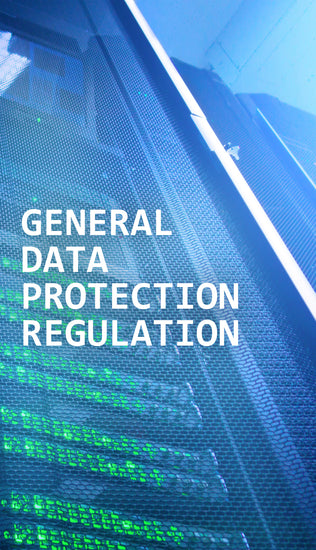
There’s also been a more recent change in 2025, meaning that there are phased updates to GDPR coming into effect through to June 2026, aiming to simplify compliance and support innovation across industries.
There’s also been a more recent change in 2025, meaning that there are phased updates to GDPR coming into effect through to June 2026, aiming to simplify compliance and support innovation across industries.
Proof of disposal
Regardless of where you do your shredding, the GDPR regulation requires proof that all confidential documents are destroyed, which the average office shredder doesn't provide. For GDPR compliance, a Certificate of Destruction will document essential shredding information to ensure secure disposal of sensitive data.
Secure & controlled
Our professional shredding services conform to the strict standards of BS EN 15713 Secure Destruction of Confidential Material, which means that we dispose of confidential waste in a secure, controlled manner and that our process is regulated by continual external audits to minimise risk. But GDPR compliant shredding is only one aspect of how to be compliant with GDPR.
Your documents, managed
An entire GDPR document management system is needed to follow GDPR, involving document scanning, document storage, and effective confidential waste. It’s a lot to keep on top of, which is why Shredall SDS Group is here to help.
The 4 main aspects of GDPR compliant document management
1. Shredding management
Shredding and GDPR go hand in hand. Until recently, many businesses have held files for longer than they are legally entitled to, increasing the risk of sensitive data being leaked, when they should have put processes into place to ensure document destruction within the legal retention periods.
Even businesses with GDPR compliant shredding policies in place need to ensure they are complying with GDPR properly and consistently. Standard office shredders will not meet the requirements. To ensure proper destruction, industrial high security cross cut shredders like the ones Shredall SDS Group use, should be used to ensure that sensitive documents are shredded into extremely fine pieces to reduce the risk of them being reassembled.


How Shredall can help with GDPR compliant shredding
Complying with all of the requirements in-house could be both time-consuming and costly. Shredall’s data destruction services are fully compliant with the GDPR’s requirements and can provide your business with an effective solution for the safe disposal of sensitive personal information.
Our GDPR compliant shredding is flexible to meet your needs. You can arrange regular collections or simply contact us on an ad-hoc basis. We can either come to you and dispose of your sensitive material at your office or our fully-vetted staff can dispose of it at one of our secure depots. Either way, your paper documents will be completely disposed of and you will immediately receive a digital copy Certificate of Destruction so you can prove your shredding is fully GDPR compliant.
How Shredall can help with GDPR compliant shredding
Complying with all of the requirements in-house could be both time-consuming and costly. Shredall’s data destruction services are fully compliant with the GDPR’s requirements and can provide your business with an effective solution for the safe disposal of sensitive personal information.
Our GDPR compliant shredding is flexible to meet your needs. You can arrange regular collections or simply contact us on an ad-hoc basis. We can either come to you and dispose of your sensitive material at your office or our fully-vetted staff can dispose of it at one of our secure depots. Either way, your paper documents will be completely disposed of and you will immediately receive a digital copy Certificate of Destruction so you can prove your shredding is fully GDPR compliant.
2. Confidential waste
The GDPR regulations include the right for individuals to request the deletion of their personal data in a timely manner. Because of this, many companies are looking for secure ways of disposing confidential waste, such as paper documents or electronic equipment such as hard drives.
Unfortunately, the average in-house shredder is not good enough to be compliant with GDPR. It also cannot deal with digital information stored on hard drives, which needs to be shredded. Finally, it may be difficult and time-consuming to transport the confidential waste to a site where it can be securely disposed of. That’s where Shredall SDS Group comes in.
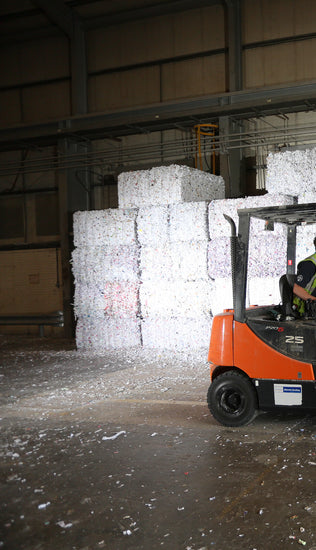
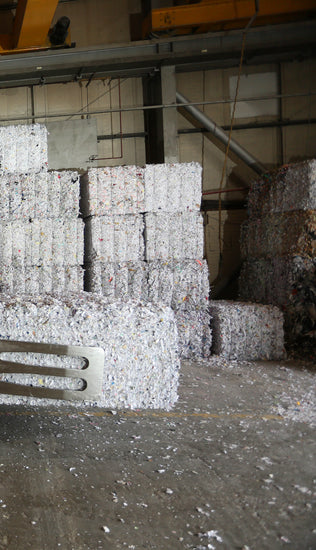
How Shredall can help your business comply with GDPR waste disposal
Our GDPR compliant confidential waste disposal service is simple. You arrange when you'd like us to collect your confidential waste and we can organise an off-site or an on-site scheduled visit, or simply visit as and when you need us.
The shredded waste is then baled and collected for recycling, reinforcing our commitment to protecting the environment.
How Shredall can help your business comply with GDPR waste disposal
Our GDPR compliant confidential waste disposal service is simple. You arrange when you'd like us to collect your confidential waste and we can organise an off-site or an on-site scheduled visit, or simply visit as and when you need us.
The shredded waste is then baled and collected for recycling, reinforcing our commitment to protecting the environment.
Off-site vs on-site compliant shredding
If you opt for on-site shredding...
The destruction process is witnessed by an appropriate person from your company and then shredded by our specially trained operatives. We issue a Certificate of Destruction showing the weight and details of the collection. You will also be provided with a full audit trail as standard with mobile shredding services, allowing you to see the location of your confidential waste at any point in time. The shredded waste is then compacted into the rear compartment of the vehicle, locked and transported to our shredding depot in Glasgow or Nottingham, where it will be baled and collected for recycling.
If you opt for offsite shredding...
Our fully trained operatives scan the barcodes on each receptacle, providing an audit trail that continues until the final invoice. They transfer the waste to our custom-built vehicle, where it’s securely locked in the rear. Confidential waste is transported to one of our shredding depots. Once all materials have been destroyed, we issue a certificate of destruction. This is a minimum requirement for anyone disposing of confidential waste and should be held on file for six years.
3. Document scanning
Stored and indexed in a secure online database, document scanning reduces the likelihood of personal data being lost, stolen or forgotten which may result in a hefty fine for breaking GDPR.
A good GDPR document management system, like the one Shredall SDS Group supplies, will also ensure no personal data is kept for longer than is allowed by law, protecting you against any fines concerning the legal retention period of documents whilst allowing you to easily track and organise your sensitive information.
SDS Document Scanning runs an on-demand scanning service that is a cost-effective way to manage documents in line with the GDPR requirements.


How Shredall SDS Group can help with GDPR document scanning compliancy
We can scan as many of your documents as you need access to in the future, then store your paper records in our secure depot, ready to be retrieved as necessary.
After scanning, we will convert your documents into a digital file and set up a secure online portal for you to access it through with our secure document management software, giving you a secure GDPR document management system that allows you to quickly access archived records.
How Shredall SDS Group can help with GDPR document scanning compliancy
We can scan as many of your documents as you need access to in the future, then store your paper records in our secure depot, ready to be retrieved as necessary.
After scanning, we will convert your documents into a digital file and set up a secure online portal for you to access it through with our secure document management software, giving you a secure GDPR document management system that allows you to quickly access archived records.
4. Document storage
It's vital for GDPR compliance that personal data in paper format isn't left unsecure. Storing confidential files offsite in a dedicated, secure facility ensures that a breach of sensitive data won’t happen.
Proper storage systems, including encryption, access controls, and regular audits, enable businesses to demonstrate that they've implemented the appropriate technical and organisational measures to safeguard personal data, which is essential to avoid potential severe regulatory fines.
GDPR supports the good practice of all individuals’ records to be identifiable, making accurate file listings for all records a critical endeavour.
Our document storage services allow you to comply with GDPR, whilst also saving you valuable time and freeing up office space. We already offer full-service records management to businesses in a range of industries across the UK.


How Shredall SDS Group can help with GDPR compliance in document storage
Our archive facilities take strict measures to protect our sites against fire and theft. All our sites have intruder and fire alarms, alarm monitoring services, rapid response teams, plus 24 hour CCTV. Buildings are entered via a Paxon - controlled door entry system and can only be accessed by our fully vetted and DBS checked staff. All visitors are accompanied onsite and all contractors must go through our contractor management system.
Fortunately, our efficient, secure file-level indexing service not only ensures that you know exactly where each and every file is stored, but it also improves the speed of data retrieval operations and helps you to retrieve individual files with ease.
How Shredall SDS Group can help with GDPR compliance in document storage
Our archive facilities take strict measures to protect our sites against fire and theft. All our sites have intruder and fire alarms, alarm monitoring services, rapid response teams, plus 24 hour CCTV. Buildings are entered via a Paxon - controlled door entry system and can only be accessed by our fully vetted and DBS checked staff. All visitors are accompanied onsite and all contractors must go through our contractor management system.
Fortunately, our efficient, secure file-level indexing service not only ensures that you know exactly where each and every file is stored, but it also improves the speed of data retrieval operations and helps you to retrieve individual files with ease.
Get in touch today for help with your GDPR document compliance
There are a lot of things to consider when ensuring your business is GDPR compliant. But Shredall SDS Group has a variety of tools to help with GDPR compliance, across a wide range of areas, from GDPR document management to GDPR compliant shredding.
Get in touch today to secure your data and protect yourself from GDPR mistakes.
Looking for a job or career opportunity? Please visit our Careers Page
